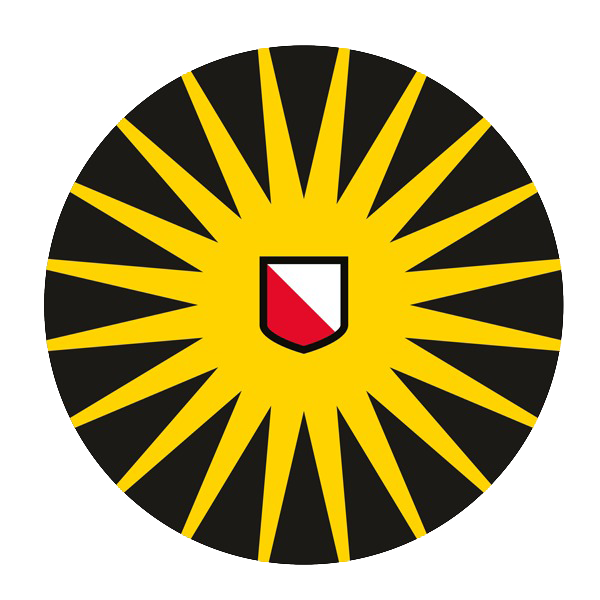AI-related masters
Masters in Utrecht:
Artificial Intelligence
Utrecht University

City: Utrecht
Focus of master:
The Master’s in Artificial Intelligence offers you an integrative and cutting-edge approach to the field from the viewpoints of Informatics, Logic, Cognition, Psychology, Philosophy, and Linguistics. Students can choose from three tracks: Agents, Cognitive Processing, and Reasoning.
Agents:
In this track, you will focus on the logical modelling, programming, and
application of intelligent agents and multi-agent systems.
Cognitive Processing:
The cognitive processing track focuses on how AI techniques can help to
understand human behavior and cognition.
Reasoning:
In this track, you will address the questions of what correct reasoning
is, how people can rationally reason with incomplete and uncertain
information and resolve conflicts of opinion, and how reasoning and
language interact.
Core programme
Mandatory courses for all students (22.5 EC)
-Methods in AI research (15 EC):
-Philosophy of AI (7.5 EC)
Mandatory courses per track (22.5 EC)
Agents:
-Intelligent agents
-Multi-agent learning
-Multi-agent systems
Cognitive processing:
-Cognitive modelling
-Experimentation in psychology and linguistics
-Advanced topics in cognitive science
Reasoning:
-Logic and language
-Commonsense reasoning
-Logic and computation
Free choice (30 EC)
Options:
-Choose from the mandatory courses of all three tracks
-Do a research internship (7,5 or 15 EC)
-Choose master courses within or outside the UU (subject to approval)
-Choose courses freely from the following UU master programmes:
Thesis (45 EC)
Neuroscience and Cognition
Utrecht University

City: Utrecht
Focus of master:
The goal of this Research Master is train you to become a neuro, and/or cognition scientist. With ample knowledge of the scope of brain and cognitive functioning, you will be prepared to join an international research team investigating the brain.
Study programme:Core programme
The core of the program consists of one mandatory, introductory course: Fundamentals of Neuroscience and Cognition. This course aims to provide starting N&C students, originating from various bachelor programs, with a firm background in the main topics in neuroscience, to introduce research groups involved in the master to facilitate internship selection and to give a first introduction into advanced neuroscience techniques.
Specialisations:
- Experimental and Clinical Neuroscience
In this track, you will use state-of-the-art techniques to study the
development, functioning, adaptation, and pathogenesis of the central
and peripheral nervous systems. Research projects include the entire
range of neuroscience topics from the level of the gene to the whole
organism – from humans to animals and from ethology to behavioural
disorders. The course content examines these topics on the molecular,
cellular, network, and behavioural levels, focusing on patients with
neurological and psychiatric conditions as well as the associated animal
models.
- Cognitive Neuroscience
This track focuses on the relationship between the central nervous
system and cognitive abilities. In your research projects, you may
examine how the normal system functions and try to understand perception
and motor behaviour in terms of the physical properties of the
environment, or you might study the consequences of neuropathology on
memory or attention. Taken together, this approach may lead to a better
understanding of both normal and disordered functioning.
Application Criteria
Only 55 people a year are selected for this master. You will be considered for admission to the Master's programme Neuroscience and Cognition if you hold a bachelor degree of a University and can demonstrate:
- In depth knowledge and insight in the field of neuroscience and/or cognition.
- Basic knowledge of biostatistics.
- Mastery of methods and techniques in the above mentioned areas.
- High level of academic and professional ability.
- A clear motivation and talent for participation in the programme.
- Oral and written proficiency in English at an advanced level.
Game and Media Technology
Utrecht University

City: Utrecht
Focus of master:
The Master’s programme in Game and Media Technology focuses on the technological aspects of gaming and multimedia in the context of computer science. It provides you with both fundamental and applied knowledge of the techniques for handling spatial data. You will gain the skills to perform research, analyse, and solve scientific problems — and to keep up with research progress in the fields of geometry, imaging, and virtual environments. It also incorporates such aspects as drama, style, and emotions, with a focus on the technical aspects. Simulating the physics, biology, and psychology of the real world and bringing it to life in multi-sensory simulations are major challenges you will explore in our dynamic programme.
Study programme:
In the research programme of gaming and simulation, you will explore:
- Modelling virtual worlds
- Creating character animation and behavior
- Generating effective scenarios
- Building multi-sensory interfaces
This is a selective master. You will be considered for admission to the Master's programme Game and Media Technology if you hold a bachelor degree of a Dutch University, if you show motivation and if you possess:
- solid basic knowledge of computer science and logic
- the ability to analyze and model computer science problems
- the ability to communicate facts and findings verbally and in writing, also using information and communication technology and audio-visual means
- the ability to make a computer programme of reasonable complexity and size, in an object-oriented programming language such as Java or C++
- knowledge of data structures, algorithms and related concepts of reasonable complexity, such as sorting algorithms, O(..)-notation, balanced binary search trees, etc.
- knowledge of mathematics, notably calculus, logic, linear algebra, probability and statistics
- knowledge of basic computer-graphics techniques
- have a good level of English understanding, speaking and writing
- BSc programmes with a major in computer science.
- BSc with a major in science and a minor (or comparable) in computer science.